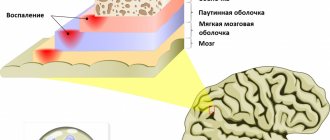The section of medicine called “therapy” is aimed at studying, diagnosing, developing a system of conservative treatment, prevention and rehabilitation, studying the pathogenesis and etiology of various internal diseases and their clinical manifestations.
The field of therapy includes the study of diseases of the cardiovascular system, respiratory system, digestive tract, connective tissue, kidneys, liver, endocrine system, as well as infectious diseases. Accordingly, a therapist is a general practitioner whose competence includes studying the cause-and-effect relationship of the mechanisms of disease of internal organs and systems. He deals with their diagnosis, treatment, prevention and, if necessary, refers the person to a more specialized specialist, for example, a pulmonologist or cardiologist. The profession of a therapist is in great demand in the field of healthcare, since it is he who carries out the initial appointment and physical examination of the patient, and, based on the existing symptoms, determines which specialist should deal with this disease, including a surgical focus.
General practitioner - who is he?
A general practitioner is a specialist with a higher medical education whose professional activities include the prevention, diagnosis and treatment of a wide range of diseases. As a rule, the therapist is the first medical specialist to whom a sick person turns. This is not accidental, since it is precisely such a professional who carries out the primary diagnostic and therapeutic measures.
The therapist has extensive knowledge in all branches of medical science without exception. If necessary, he can refer the patient for examination and treatment to a specialist.
Organs and parts of the body treated by therapists
A general practitioner must understand a wide range of diseases and their manifestations. Dwelling on the diseases that fall within the competence of a general practitioner, we can highlight the following disruptions:
- organs of the respiratory system;
- heart and blood vessels;
- kidney and urinary system;
- endocrine system;
- circulatory system;
- joints and muscles;
- connective tissues.
What competencies does a therapist have?
The professional responsibilities of this specialist include a large number of different procedures and activities. Among them are:
- patient interview (includes collection of complaints, life history, and other necessary information);
- visual inspection;
- conducting a manual examination using palpation, percussion, auscultation, etc.;
- filling out a personal medical card;
- resolving the issue of referral for various diagnostic procedures (laboratory and instrumental);
- prescribing timely and appropriate treatment to the situation.
What examination and treatment methods does the therapist use?
In addition to the initial examination and questioning of the patient, to make a diagnosis, the doctor must collect all objective information about the current state of the body. For this purpose, the therapist prescribes some laboratory tests. Based on the results of a general urine test, it is possible to determine the condition of the organs of the urinary system, as well as diseases of other organs and systems, manifested in the detection of certain elements in the urine sediment.
A general blood test shows the number of blood cells, from which one can conclude that there are inflammatory processes of a viral or bacterial nature in the body, as well as blood diseases, allergic reactions or suspicion of malignant processes.
Stool analysis can show the presence of pathogenic microflora, parasites or helminths.
The doctor may also prescribe a blood sugar test if diabetes is suspected.
In addition, therapists use other functional methods for diagnosing diseases:
- ultrasonography;
- radiography;
- electrocardiogram;
- fluorography;
- CT scan;
- digital mammography;
- Magnetic resonance imaging;
- other ways of examining the patient.
Further actions taken by the therapist consist of making a diagnosis, after which the doctor decides whether he can continue further treatment of the patient on his own, or whether it is necessary to refer the patient to a specialist. For example, when identifying ailments that require surgical intervention, the surgeon is directly involved in the treatment process and makes the decision to perform the operation.
The therapist does not prescribe surgical treatment methods; his competence includes the development of a conservative treatment plan with the prescription of appropriate medications in different forms - tablets, syrups, suspensions or solutions for intramuscular and intravenous administration. Also, if indicated, the doctor writes out a referral for physical therapy procedures, such as electrophoresis, magnetic therapy, ultrasound, quartz treatment, exercise therapy and massage.
As a preventative measure, the therapist can determine the order of adult vaccinations.
For patients who have undergone medical or surgical treatment, the doctor prescribes rehabilitation measures, including massage courses, special procedures, physical therapy, and also gives recommendations on limiting physical and work activity, creating a diet, sleep and rest.
In what cases will a therapist help?
A general practitioner helps with many symptoms and pathological conditions. Among the most common symptoms that patients present with are the following:
- increased body temperature;
- fluctuations in blood pressure;
- problems with the gastrointestinal tract;
- numbness of various parts of the body;
- signs of respiratory diseases;
- dyspnea;
- pain in various parts of the body;
- nausea, vomiting;
- dizziness;
- weakness, malaise;
- chronic fatigue;
- swelling in the legs or elsewhere;
- a sharp increase or decrease in body weight;
- much more.
What symptoms should you consult a therapist for?
In the normal state of a person, the presence of some deviations is sometimes allowed, for example, a rare feeling of fatigue or the appearance of muscle pain after too intense physical activity. However, it is important to understand and distinguish those manifestations and sensations that may be signs of an incipient disease. So, the reasons for contacting a therapist are:
- causeless weight loss;
- chronic fatigue, which occurs constantly over a long period of time;
- increased fatigue, when even the usual everyday stress causes rapid malaise;
- pain of any localization;
- tinnitus, unmotivated weakness, numbness of the limbs;
- characteristic primary signs of diseases, for example, runny nose, sore throat during ARVI;
- constant low-grade fever or sudden increase in temperature;
- changes in the external characteristics of urine and feces;
- decreased concentration and attention.
Other painful conditions, a feeling of heaviness, physical or mental discomfort are also indications for visiting a therapist. You can get an appointment and consultation with a doctor at a clinic or hospital. If the symptoms of the disease are accompanied by a very high temperature or a marked deterioration in health, a doctor is called to the home for an initial examination and decide whether the patient needs to be admitted to a hospital or remain at home for treatment.
Why a therapist is useful
Very often there is a situation when a person experiences general malaise or feels any specific symptoms, there is no understanding of which specialized medical specialist is best to contact. It is in this case that the help of such a specialist as a therapist is needed.
This generalist doctor will not only solve your existing problems, but will also conduct a full examination of the whole body. The result of such an examination may be the identification of any sluggish changes in the initial stages. And this is very important, since any diseases and pathological conditions are better treated in the first stages of their course.
Consultation with a therapist for pregnant women
After the obstetrician-gynecologist, the second most important examination of pregnant women occurs with a therapist. As a general rule, consultation with this doctor occurs at least twice - when registering for pregnancy monitoring, and at the thirtieth week. A woman comes to an appointment with a doctor with ready-made blood tests, urine tests, a coagulogram, blood biochemistry, and she also first needs to undergo an electrocardiography procedure.
During the examination, the doctor collects information about past illnesses, examines medical documentation and test results: this way the doctor can determine the presence of any pathologies or dysfunctions of the body that are not related to the state of pregnancy. If any chronic diseases are detected that may pose a danger to the unborn child, the therapist may decide to hospitalize the woman in a hospital.
When examining a pregnant woman, the therapist must be very attentive to all manifestations indicating the possible presence of diseases or abnormalities in the functioning of organs and systems, because any health problems of the expectant mother can negatively affect the development of the fetus. Another feature of examination and treatment of pregnant women is that women in such a special situation are not allowed to take all medications, and some research methods, for example, radiography, are not recommended for use with them at all.
Various complications during pregnancy, such as anemia, hypertension, toxicosis, hypoxia, require systematic monitoring by a physician and the prescription of appropriate medications approved during pregnancy.
Where does a therapist train?
Like other professional doctors, this specialist goes through a full cycle of medical education. This training program includes many years of studies at the medical faculty of an institution of higher professional education. Then the future specialist will undergo in-depth training, which allows him to immerse himself in the diagnosis, clinic and treatment of various diseases of the internal organs of a person.
All specialists who work in our clinic have completed a full course of training, which is confirmed by relevant diplomas, certificates and accreditation certificates. In addition, each specialist regularly improves his or her own level of qualifications by attending various courses and seminars. This approach allows you not to lose a high level of professional skill. And this is very important in the age of development of medical technologies, during the introduction into practice of new innovative methods for diagnosing and treating diseases of internal organs.
What does a therapist treat?
First of all, the general practitioner must be able to diagnose and carry out the necessary treatment of infectious diseases (influenza and acute respiratory infections, food poisoning, dysentery, whooping cough, measles, scarlet fever, chickenpox, mumps and others). In addition, the therapist must be able to diagnose and treat diseases of the cardiovascular system, respiratory system, digestive system, urinary system, endocrine system, hematopoietic system, and rheumatic diseases. In these cases, the therapist performs a coordinating function (directs the patient to the appropriate specialist) and exercises general control over the progress of treatment, that is, “guides the patient.”
This article is posted for educational purposes only and does not constitute scientific material or professional medical advice.
Where to go
Our clinic’s professionals diagnose and treat a wide variety of diseases encountered by our patients. We have a lot of experience in therapy even in the rarest cases, when specialists from other medical institutions and diagnostic centers remain powerless.
Our clinic is equipped with professional medical equipment, which helps general practitioners conduct thorough diagnostics and prescribe correct treatment that is appropriate to the situation. It is worth noting that our diagnostic service has the ability to perform several thousand types of laboratory tests. Therefore, a therapeutic doctor has in his arsenal all the necessary tools for an accurate diagnosis.
A general practitioner helps not only with certain diseases. You can consult during pregnancy, as part of rehabilitation after an acute illness, and in many other situations. Do not delay treatment if you have any health problems. Any therapeutic measures are more effective in the early stages.
It often happens that a person, feeling unwell, cannot decide which specialist he should contact. At the same time, there is a doctor whose task is the initial examination and consultation of patients. The therapist collects a medical history, analyzes the symptoms and decides which specialized doctor to refer the patient to. Sometimes the issue of making a diagnosis is decided at the therapist level. The sooner a patient seeks qualified help, the faster he will get rid of health problems.
Where to make an appointment with a general practitioner in Odintsovo
Therapists at the Orinmed clinic diagnose and treat various diseases. The best professionals are ready to provide competent support and give useful recommendations at a time convenient for the patient. The therapeutic rooms of the Orinmed clinic are equipped with the latest diagnostic equipment. Clients of the clinic have the opportunity to undergo various studies and pass more than 2000 types of tests. In the clinic’s laboratory, you can undergo examinations to prepare for hospitalization, scheduled medical examinations, pregnancy monitoring, and tracking the progression of chronic diseases.
Our clinic is located at Odintsovo, st. Severnaya d.5 k.4 (residential complex "Odinburg"), phone: +7 (495) 740-95-95
What general practitioner services are offered at Orinmed:
Patients are offered a wide range of therapist services.
- Initial (repeated) appointment, which includes the formation of a treatment plan.
- Making a diagnosis with the help of a consultation of clinic specialists.
- Receiving recommendations from the Chief Physician of the Clinic.
- Registration of various medical certificates: for visiting the swimming pool, sports sections, fitness clubs, for employment, referrals for fluorography, various tests.
- Registration of a medical card for a sanatorium or a tourist trip.
All services are provided in comfortable conditions, without queues, at a time convenient for patients. The results are sent by email or transmitted personally.
| THERAPY | Cost, rub |
| Primary outpatient appointment with a therapist (with drawing up a treatment plan) | 1 500 |
| Repeated outpatient appointment with a therapist (with drawing up a treatment plan) | 1 250 |
| Help for the pool | 850 |
| Certificate for the sports section, gym (ECG required) | 950 |
| Medical exemption from vaccination | 1 000 |
| Doctor's report to be presented at the place of request | 1 000 |
| Certificate for employment (issued with a general blood test, general urine test, fluorography, screening (RW, HIV, hepatitis) | 1 500 |
| Registration of a sanatorium-resort card (according to the submitted medical documents) | 1 500 |
Who is a primary care physician and what does he do?
The local physician is a key link in the system of medical care for the population. This doctor takes a major part in the healing of the entire adult population living in a specific territory - an area that is assigned to him, and, for this reason, local therapists can be called family doctors, because they constantly interact with the same circle of people, are familiar with their living conditions, lifestyle, and previous illnesses. Thanks to this, the local therapist can more quickly and accurately predict the possible causes of certain diseases in a particular person.
The local doctor maintains dispensary records and observation of chronic patients, monitors the timely implementation of preventive measures, vaccinations, carries out primary diagnosis of the disease, prescribes and carries out rehabilitation and preventive measures. After the patient’s recovery, the patient’s condition and ability to work are assessed and he is given a certificate of incapacity for work or a certificate of exemption to be presented at his place of study or work.
How to prepare for an examination with a therapist?
An appointment with a doctor in a private clinic, as well as with a local therapist, does not require special preparation. However, there are a few points worth paying attention to:
- Check the recording date and time.
- Pay attention to hygiene before visiting a doctor.
- The clothing you are wearing should be comfortable and allow for a quick inspection (usually above the waist).
- Be sure to bring with you all medical records, notes, test results, and prescriptions that you have received since your last visit to the doctor.
It is better to arrive at the clinic 15 minutes before your appointment to check with the administrator where the therapist’s office is, take off your outerwear and visit the restroom if necessary.
How to understand what you need to see a therapist
Based on your symptoms, you can first determine that you should seek help from a therapist:
- Pain is felt in different parts of the body;
- Presses or pulls in a certain place;
- There is discomfort and constant fatigue;
- Concentration decreases, absent-mindedness and forgetfulness increase;
- Blood is noticed in the urine or stool.
Well-being is influenced not only by natural factors and age-related changes. Your body signals a problem in every possible way. Therefore, you should not ignore obvious symptoms.
Colds during pregnancy
It is known that it is necessary to refrain from taking medications and especially antibiotics and antiviral drugs during the period of bearing a child. Therefore, at the first symptoms of a cold, you should immediately consult a physician. The doctor at our clinic will prescribe a series of tests, conduct an examination, and prescribe treatment based on the results. At the same time, he will select the safest and most effective treatment plan. In such cases, not only the risk to the child is assessed, but also the likelihood of the harmful effects of the infection itself. Therefore, the therapist can prescribe medications to speed up treatment, assessing all the possible risks. Throughout the entire treatment period, the patient is under the supervision of a therapist.
How websites are created: briefly, to the point, without water
What are the stages involved in creating a website:
- Drawing up technical specifications (also known as technical specifications). We describe in detail the wishes and functionality. Before this, the owner of the future site should already have a clearly formulated idea for the project and spelled it out in detail. Otherwise, it may never launch and development will be more expensive due to constant changes.
- Prototyping. No pictures or text yet. The arrangement of blocks on the pages, fonts, and general views are consistent.
- Design of PSD layout of standard pages in Adobe Photophop.
- Layout. At this step, the layout from step 3 turns into real website pages, only for now on the test server.
- Buying a domain and renting hosting.
- Installation of a CMS (content management system) that best suits the requirements of the technical specifications.
- Transfer of layout design.
- Configuring internal functionality and checking its functionality according to the technical specifications.
Sometimes that's where it all ends. Especially if the customer does not understand the essence of the issue and orders someone to make a website so that there is. After all, everyone is saying that he is needed. That's all - now it is. This just won't work. It needs to be filled, and for this there must be an understanding of what exactly to fill it with. For those who need a website not for appearance, but for the sake of results, the list of works continues:
- Analysis of competitors from the TOP search engine results. 10-20 sites. Let's find out their strengths and weaknesses. It is advisable to do this before launch, because... There may simply not be enough money if the niche turns out to be overheated and highly competitive.
- Primary optimization. Helps speed up the process of promotion in search results from the start, because semantics from the next stage is sometimes long.
- Adding a domain to search engines and Webmaster panels. Setting up web analytics.
- Collection and clustering of the semantic core. Let's find out how the product or service chosen for the site is searched for by real people on the Internet. With the help of specialized software, the output is detailed content of future articles, the structure of categories, and an understanding of the scale of the project.
- We are looking for a crowd of content managers. We are drawing up instructions for filling out standard pages. We write detailed technical specifications for each individual document. We give it to them. The site began to be filled with content (depending on the type of project, these could be articles, product cards, service pages, or all at once).
You can stop there and it will work. Not 100%, but it will still happen. To give your all, the process will never stop. It will turn into a dense interweaving of web analytics, optimization, design, advertising and a number of other areas. As the development of the site stops, its traffic will eventually plateau and someday inevitably begin to fall.
If you have questions, you can ask them in the comments. For me, all stages of development proceed in a single cycle, without third-party contractors. Ready to share my experience.
Why you need to see a therapist
The therapist is responsible for making a preliminary diagnosis and treating acute respiratory viral infections, acute respiratory infections and other diseases. To make the diagnosis accurate and the therapy effective, the doctor examines the patient and collects anamnesis. If necessary, writes out directions for tests and examinations: cardiogram, general blood test, MRI and other studies.
Appointment with a therapist
The therapist's appointment begins with a conversation between the doctor and the patient. First, the specialist must collect all the information he is interested in. To do this, he asks his visitor many questions: what worries him, what symptoms were noticed, what diseases he had previously suffered from, etc. The more detailed and accurate the patient answers, the easier it will be to make a preliminary diagnosis .
We can say that a therapist's office is the starting point to which a person turns to be directed in the right direction to receive qualified help. It always contains all the tools necessary for a quality inspection.
It is worth noting that already from the first conversation the patient will be able to understand how competent and experienced the specialist is receiving him. Using standard questions, our clinic staff are able to collect all the necessary information about the characteristics of the visitor’s body, find out the main symptoms of the problem and make a preliminary diagnosis, which will later need to be confirmed with the help of additional examinations, tests and consultations with more specialized specialists.
The therapist may also prescribe the necessary medications for the visitor.










